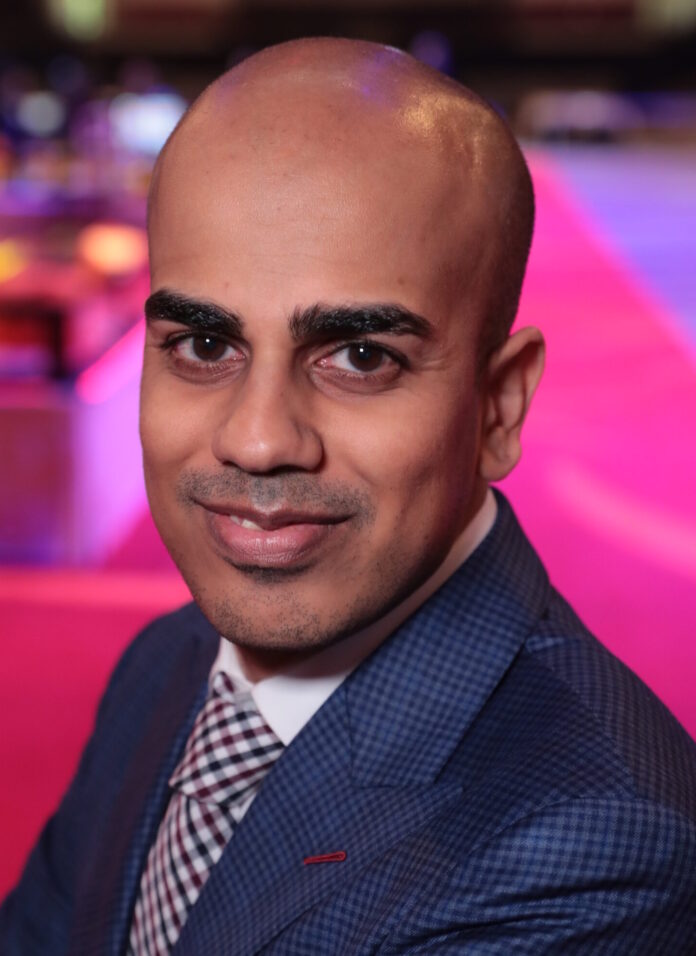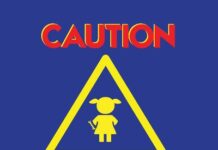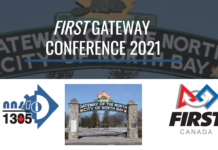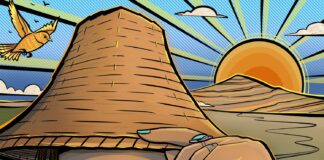Karthik Kanagasabapathy is the Operations, Digital Strategy and Analytics Manager at FIRST Robotics Canada. He was one of the founding members of FRC Team 188, the first ever Canadian FIRST Robotics Competition Team. When he’s not busy MCing at FIRST Robotics Competitions, he likes to obsess over sports, the Marvel Cinematic Universe and math!
As an FRC alum, Karthik has had experience learning about what allyship is and how to be a good ally. The FIRST Canada Youth Council had the pleasure of interviewing Karthik and learning about how we can do our best to be good allies. Here is what he had to say:
Sreela: What is allyship and why is it important?
Karthik: Allyship is a verb; it’s a set of actions. It’s active, sustained, and a lot of hard work, and is part of the process in which a person with privilege and power operates in solidarity with an oppressed or marginalized group.
Allyship is important because our world today was created to enhance systemic inequity. There are plenty of people who are consistently and systematically marginalized in all facets of society. As those with privilege, it’s our responsibility to support those in need, help dismantle these systems of oppression, and understand that our privilege comes from these very systems. Responsibility is such a key concept here. Being an ally isn’t something you should just do because it’s nice; if you have privilege and power it’s your responsibility to be an ally.
Living in today’s world is incredibly difficult for those without privilege. Having allies will help change the future, but also provides immensely needed support in the present.
Sreela: What does being a good ally look like?
Karthik: Allyship starts with education. It requires a lot of learning and self reflection. It can be hard and embarrassing; because you’ll learn about a lot of mistakes you’ve made, and just how imbalanced our society is. Think about the Truth and Reconciliation report, for example; it documents centuries of oppression faced by the Indigenous peoples of Canada that benefitted all non-Indigenous Canadians. Accepting this fact is essential to be an ally to Indigenous people, because unless you acknowledge and openly discuss this, you will be capable of perpetuating the systems that allowed this to happen in the first place.
Good allies don’t depend on others, especially marginalized groups, to educate them. You need to do the work yourself. Being a member of an oppressed group is already exhausting; they don’t have the energy to constantly explain why and how they’re oppressed to those in positions of privilege.
Good allies always listen. This isn’t about you! It isn’t about your ideas, feelings, and opinions. It’s about those who you’re trying to be an ally to. You need to give them space, make them feel safe, and actively listen.
As I said earlier, allyship is a verb. That means it requires action. You can do all the important learning and unlearning you want, but allyship doesn’t begin until you’ve taken actions. Now, actions don’t have to be large, but they should line up with your level of privilege. When you’re younger, it can be as simple as speaking up about an offensive joke and removing the burden to speak up from the oppressed victim of the joke. As you get older, it’s about using your power and privilege to start dismantling the systems of oppression in your workplaces, communities, and beyond. Again, these can be hard steps, but being an ally definitely will involve some discomfort.
Good allies have to be able to accept criticism. No one ever gets everything right all the time. But allies need to be honest and accountable for their mistakes. And when you get called out on a mistake, you need to acknowledge it, and work to learn and grow from it. The education cycle of being an ally never ends.
Finally, good allies do this with no expectation of recognition. Remember, as we discussed earlier, this is a responsibility. You need to do it. That being said, recognition may come along the way because people are good and kind, but it’s not an expectation, and you shouldn’t be upset if it’s not there.
Sreela: Do you have any tips for individuals that would like to become allies, but are unsure of where to start?
Karthik: Start educating yourself. This is the most important step. Make sure you’re reading what’s put out by authors from the group you’re trying to be an ally to. Understand that this learning process will be challenging and embarrassing. Our history (and present!) is filled with many ugly truths that may be new to you. Make sure you’re always listening and open to changing and dismantling your previous conscious and implicit biases. I highly recommend the Implicit Bias tests offered by Harvard. These were incredibly eye-opening for me; I learned a lot of hard truths about myself, and they really made me aware of my biases.
And I think the other tip that’s crucial here is to be empathetic. If there’s one thing this world needs more of, it’s empathy. Try putting yourself in the shoes of those you’re trying to be an ally to. Try and understand their situation, challenges, plight, and oppression. Again, it can be very eye-opening.
Sreela: We all do things subconsciously without realizing we’re doing them. These subconscious habits like microaggressions, unconscious bias and defensiveness may seem minor, but can be very detrimental to those on the receiving end. Do you have any advice for individuals who are trying to recognize these subconscious habits and change their language?
Karthik: So you hit my first point already. You can’t change these habits without recognizing them. One of the best ways to recognize these is to surround yourself with people who are willing to call these behaviors out. In addition, be the person who calls these behaviors out in others. You can (and should!) do this without being a jerk. But if you see someone performing a microaggression, say something! “Hey, I just noticed you used some language there that has some deep-seated offensive roots; maybe try saying this instead.”
And when you do get called out, think about it. Don’t just dismiss it. Do some research. Figure out why you did it? Try and find the root of the action/behavior. Sometimes learning about one habit will lead you to discover a whole other chain of habits. Remember, we all make mistakes, and we all have unconscious biases. If you discover one, it doesn’t mean you’re a terrible person, but it does mean you have to spend some time trying to understand where this bias came from, how you can dismantle it, and how to overcome it.
Sreela: Many young individuals, such as myself, want to be allies but may be afraid that what they’re doing comes off more as “performative activism” than allyship. What advice do you have for these individuals?
Karthik: Well, as we’ve discussed, allyship is a verb. It requires action. Action is more than liking a post on Insta or adding a frame to your profile picture. It’s not that these performative actions are bad, but they need to be accompanied by corresponding actions. So instead of just showing support very superficially, try and find ways to actively support the group/cause.
Also, you need to be genuine. Before taking a step, especially on social media, ask yourself, “am I doing this because I want other people to see me doing this, or am I doing this because I want to actually help”. Allyship should not be a “look at me” type thing. You’re doing it because it’s your responsibility, not for social media clout.
Sreela: I apologize, but I don’t recall everything you mentioned in your wonderful presentation at the Girls and Allies in FIRST STEMathon. Do you have anything else you mentioned during your presentation that you would like to share?
Kathik: It’s okay, I don’t recall everything I mentioned in that presentation either! I just want everyone to remember that the process of becoming a good ally takes time and won’t always be smooth. Everyone will make mistakes, and that’s okay. What’s important is that you’re trying, and you’re making real efforts. Heck, just by reading this magazine right now, you’re taking steps towards your learning process. This stuff matters! So keep learning, keep speaking, and keep supporting. You’ll be a great ally in no time, and trust me it will be appreciated. The best allies in my life have helped me along my journey and have inspired me to utilize my privilege to be the best ally that I can be. Also, I want to thank Dr. Imogen Coe who’s been such an inspiration to me in my journey towards becoming a good ally. So much of what I’ve said here today has been based on her teachings!









